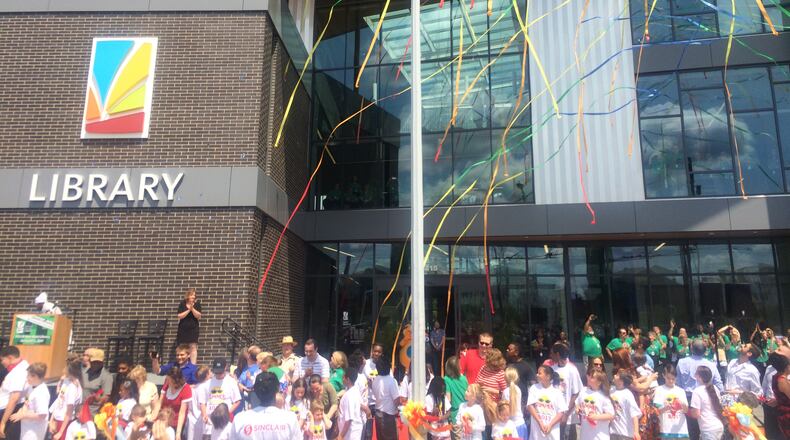The city of Dayton recently issued a request for proposals seeking a consultant to provide diversity, equity and inclusion training.
“As we have seen locally and across the country there is strong competition for talent,” said Dayton City Manager Shelley Dickstein. “We know that a diverse workplace has advantages in recruiting talent, improving employee morale and ultimately yields to better decision making.”
Credit: Chris Stewart
Credit: Chris Stewart
Jeffrey Trzeciak, executive director of the Dayton Metro Library, said the library system is committed to increasing the diversity of its workforce to be more representative of the communities it serves.
The city’s of Dayton’s population is about 56% white and 38% Black.
The library hired an outside consultant to conduct an “equity audit” that led to six priority recommendations, library staff said.
One recommendation was to hire a director focused on equity, diversity and inclusion. Other recommendations called for enhanced training, new human resources software and the creation of a new method to track progress in this area.
The library also conducted an audit of its collections and says it will diversify its materials to include more that are in foreign languages and more authors of color and from different ethnicities.
The library also says it will buy more titles from “boutique” suppliers to achieve these goals.
“We’re already making some changes, both internally and how we are facing our community outwardly,” Trzeciak said.
The city of Dayton is looking for a consultant to teach and train its Diversity, Equity and Inclusion (DEI) Advisory Committee, which consists of about 25 city employees.
City leadership believes diversity, equity and inclusion training can have a positive impact and increase employee engagement and satisfaction while improving the organization’s and individuals’ performance, said Lamonte Hall, assistant to the city manager.
“The primary goal is to create a long-term strategic plan that will set the vision, mission, values, and goals to create a more diverse, equitable and inclusive workplace,” he said.
About 73% of city workers are white, while about 24% are Black, according to city data. A small number of employees are Hispanic, Asian, American Indian or two or more races.
Community members who took part in the Dayton police reform efforts have said the city’s workforce does not reflect the community, citing a specific need to significantly increase the diversity of public safety forces.
About the Author



